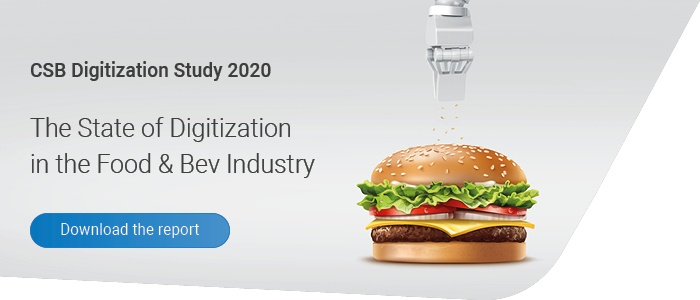Everybody is talking about the cryptocurrency bitcoin, but hardly anyone knows the blockchain. But this is about to change. Why the internet-based information system could transform the food industry, and how businesses can approach this technology.
After its small triumph advance in the financial sector, it is now set to enter the food industry as well. We are talking about the blockchain technology. Behind the blockchain is a decentralized database in the cloud that is updated chronologically and that stores a continuously growing list of transaction data records. Like in a chain, new elements are added permanently to the end of the blockchain until a block is complete. Then the next block is generated.
What sounds pretty theoretical could be the outpost of a disruptive change of the supply chain. For example, in their current article in “Lebensmittelzeitung” (a German food magazine), Cornelius Herzog and Philipp Oest from the Oliver Wyman consulting firm state that the blockchain has “the potential to revolutionize the supply chain.”
Safe food through the blockchain
In the future, the blockchain could provide valuable support in many areas of the food industry, replacing established procedures and technologies. One concrete application scenario is the traceability of food. Blockchains save the data in a decentralized cloud database in an audit-proof format. This enables a legally compliant exchange between any number of players - from vendor to producer, wholesaler, logistician and retailer and to the customer. As everybody works with the same data record, every transaction can be transparently traced in real time, even after a longer period. Inconsistent or even missing information, paper-based documentation and interface problems during the exchange of date: The blockchain technology could eliminate many of the weak points in today’s supply chains. This has positive effects not only on costs and on speed. Ultimately, it will make food safer. Origin information, lot numbers, production data, minimum sell-by dates, documentation of the cold chain - All of this data is stored in the blockchain. Contaminated products can be identified and withdrawn in an instant.
Stepwise integration in the supply chain
If you want to utilize the benefits of the blockchain, the Wyman consultants recommend a stepwise integration in the supply chain, building up an internal blockchain database to get familiar with the technology. In the next step, the database should be extended to upstream and downstream players to promote the data exchange. “In the end, all players of the supply chain including the consumers are tied in. The final result is a better shopping experience for the customers, a higher added value along the entire supply chain as well as more efficient processes and, consequently, cost reductions,” say Herzog and Oest. Read more at www.oliverwyman.de


